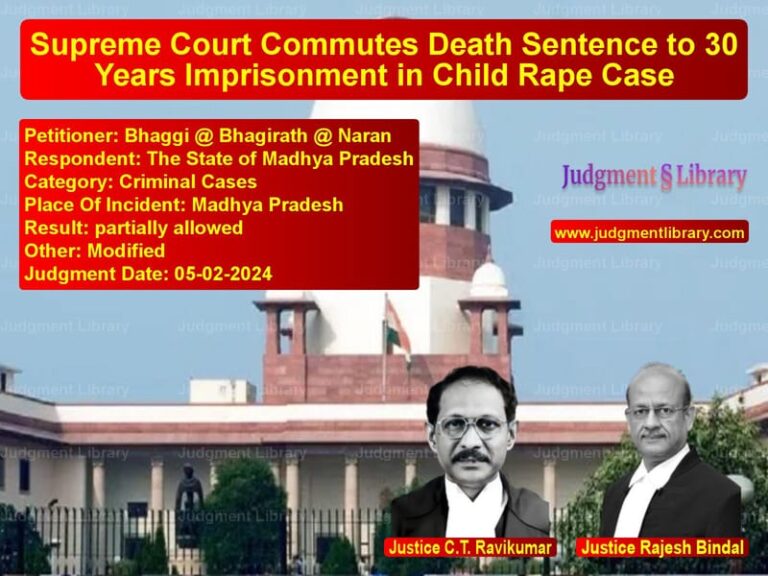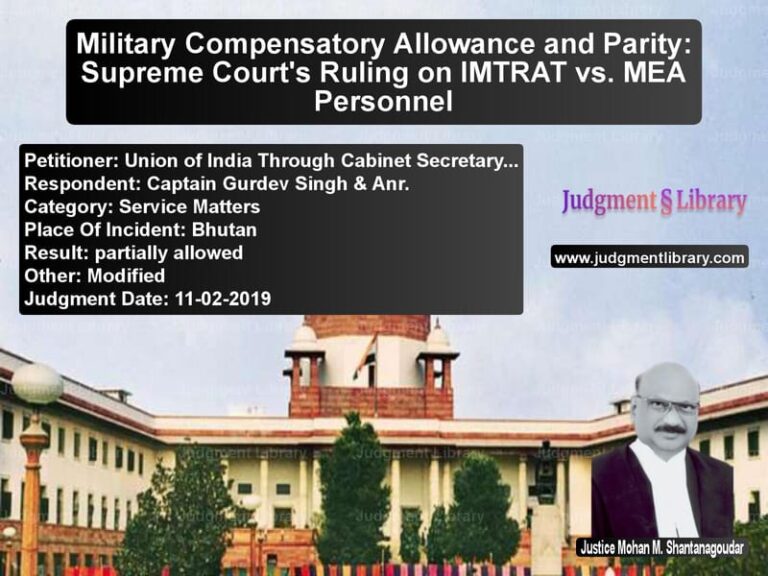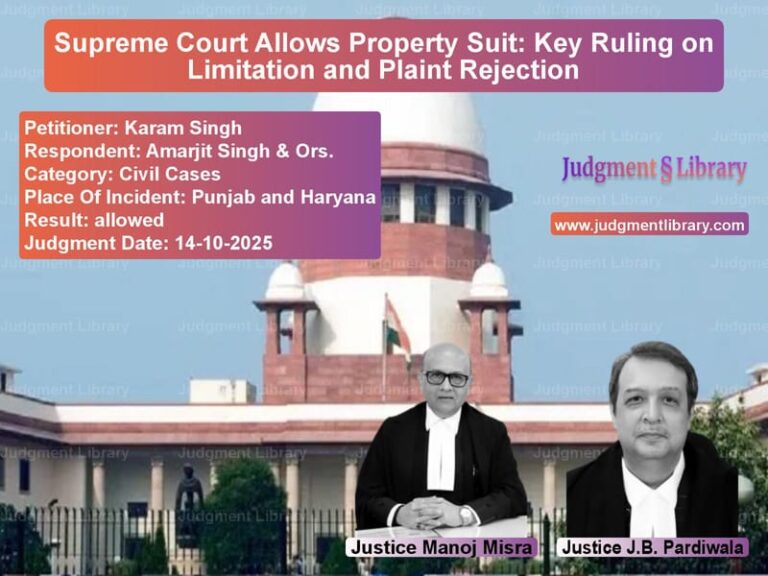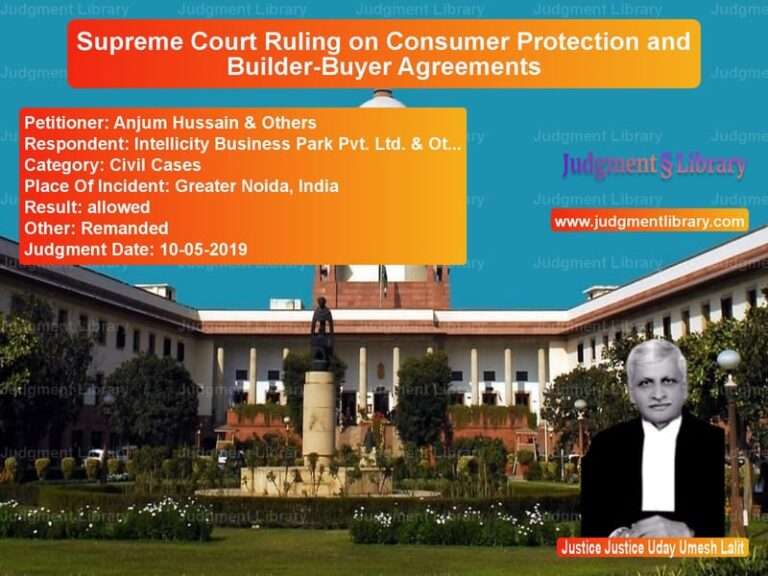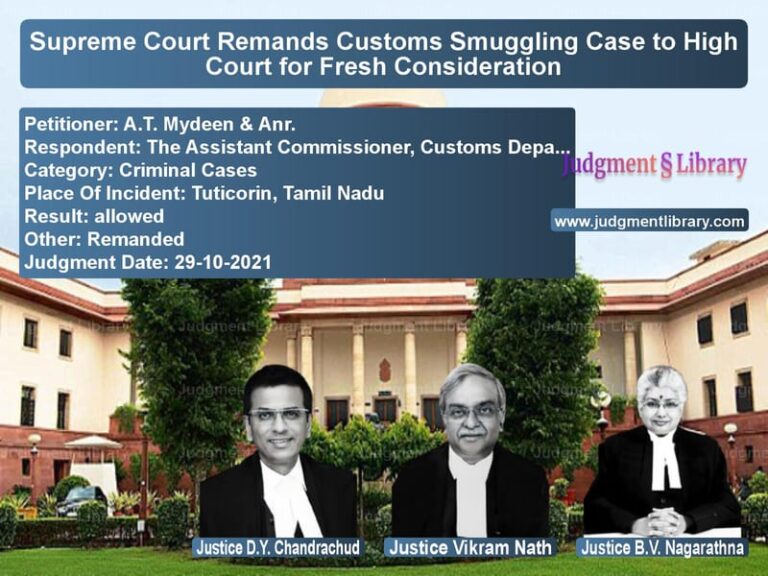Supreme Court Orders Surrender of Inmates Released on COVID-19 Parole and Interim Bail
The Supreme Court of India has ruled that all undertrial prisoners and convicts who were released on emergency parole or interim bail during the COVID-19 pandemic must surrender before the prison authorities within 15 days. The decision was made in the case of Director General (Prisons) vs. In Re: Contagion of COVID-19 Virus in Prisons, where the Court clarified that the temporary release of prisoners was due to pandemic-related concerns and not based on the merits of their cases.
Background of the Case
In 2020, the Supreme Court took suo motu cognizance of the overcrowding in prisons and the potential health risks posed by the COVID-19 pandemic. In response, the Court issued multiple orders, including on March 23, 2020, May 7, 2021, and July 16, 2021, directing state governments and union territories to form High-Powered Committees (HPCs) to identify prisoners eligible for release on interim bail or emergency parole.
The Delhi High-Powered Committee, following these directives, released thousands of prisoners, including:
- 4,683 prisoners (1,184 convicts and 3,499 undertrial prisoners) in the first phase in 2020.
- During the second wave of COVID-19, an additional 3,630 undertrial prisoners and 751 convicts were released.
With the normalization of the COVID-19 situation, the Director General (Prisons), New Delhi, approached the Supreme Court seeking directions for the surrender of these released inmates.
Arguments by the Petitioner (Director General, Prisons)
- All prisoners released under COVID-19 directives were not granted bail or parole on merits but only as a temporary measure to reduce overcrowding.
- With the pandemic situation under control, these inmates must return to prison and complete their sentences or continue their legal proceedings.
- In several states, prisoners released under similar orders had already been recalled, and Delhi should follow the same process.
- Out of the 751 convicts released, only 71 had voluntarily surrendered.
- Out of the 3,630 undertrial prisoners released, only 267 had surrendered.
Supreme Court’s Observations and Ruling
The Supreme Court agreed with the arguments presented by the Director General (Prisons) and noted that:
- The prisoners were released as a precautionary measure due to the health risks posed by COVID-19 in overcrowded prisons.
- Their release was not based on their individual case merits but on a general policy of decongestion.
- As the COVID-19 situation has normalized, there is no longer any justification for allowing these prisoners to remain outside prison.
- Prisoners must surrender within 15 days from the date of the order.
The Court stated:
“All those undertrial prisoners/convicts who were released on emergency parole/interim bail have to surrender before the concerned prison authorities within 15 days.”
Final Judgment
The Supreme Court ordered:
- All prisoners released due to COVID-19 must surrender within 15 days.
- Prison authorities must inform these prisoners of the order.
- After surrendering, undertrial prisoners are free to apply for bail, and their applications must be considered in accordance with the law.
- Convicts who had been released on emergency parole may apply for suspension of their sentence before the appropriate court.
Implications of the Judgment
The ruling has significant consequences for prison administration, judicial processes, and the justice system:
- Ensuring Prison Discipline: The Court’s decision restores order in the prison system and prevents inmates from misusing the temporary relief granted during the pandemic.
- Maintaining Legal Integrity: The ruling reinforces the principle that temporary relief does not equate to acquittal or permanent release.
- Opportunity for Fair Trials: Undertrial prisoners can still seek bail from competent courts.
- State Compliance: Other states that have not yet recalled their prisoners may follow Delhi’s example.
Conclusion
The Supreme Court’s judgment in the COVID-19 parole and interim bail case marks the final step in restoring normalcy in prison administration. By mandating the surrender of inmates, the Court ensures that the legal process remains intact while also allowing prisoners to seek regular bail or sentence suspension through the judicial system. The ruling upholds the balance between humanitarian concerns during the pandemic and the need to maintain law and order within the justice system.
Petitioner Name: Director General (Prisons).Respondent Name: In Re: Contagion of COVID-19 Virus in Prisons.Judgment By: Justice M.R. Shah, Justice C.T. Ravikumar.Place Of Incident: New Delhi.Judgment Date: 23-03-2023.
Don’t miss out on the full details! Download the complete judgment in PDF format below and gain valuable insights instantly!
Download Judgment: director-general-(pr-vs-in-re-contagion-of-supreme-court-of-india-judgment-dated-23-03-2023.pdf
Directly Download Judgment: Directly download this Judgment
See all petitions in Bail and Anticipatory Bail
See all petitions in Custodial Deaths and Police Misconduct
See all petitions in Judgment by Mukeshkumar Rasikbhai Shah
See all petitions in Judgment by C.T. Ravikumar
See all petitions in allowed
See all petitions in Declared Infructuous
See all petitions in supreme court of India judgments March 2023
See all petitions in 2023 judgments
See all posts in Criminal Cases Category
See all allowed petitions in Criminal Cases Category
See all Dismissed petitions in Criminal Cases Category
See all partially allowed petitions in Criminal Cases Category


